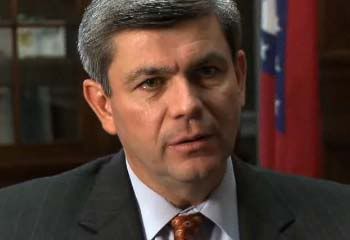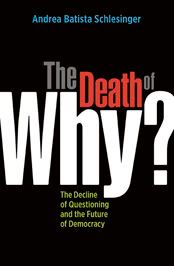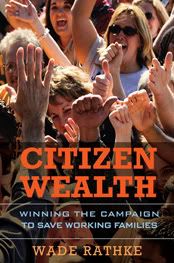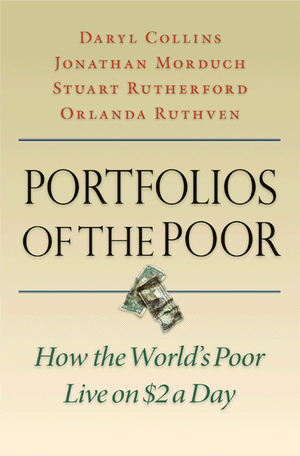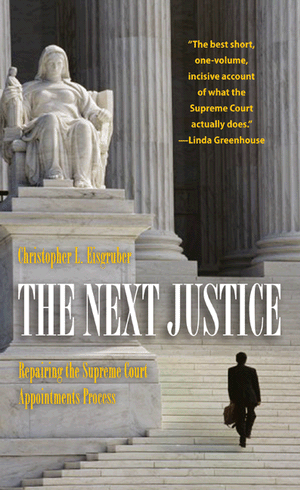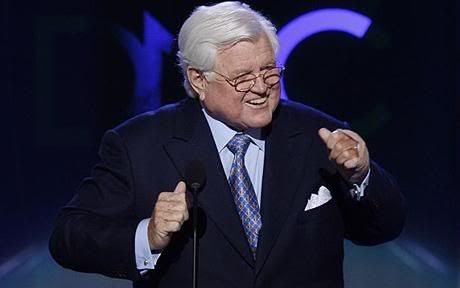 Like millions of my fellow citizens, I am reflecting after the death of Ted Kennedy. Death is an egocentric experience for the survivors. Indeed, rituals such as funerals, wakes or in the Jewish religion “sitting Shiva,” is really about nurturing the souls of those left behind. That is also true when it is a public figure or celebrity that has died. We may never have met them or knew them yet they touched us nonetheless. The Kennedy family understands this better than anyone and is well practiced in rituals that not only honor the dead but comfort the living.
Like millions of my fellow citizens, I am reflecting after the death of Ted Kennedy. Death is an egocentric experience for the survivors. Indeed, rituals such as funerals, wakes or in the Jewish religion “sitting Shiva,” is really about nurturing the souls of those left behind. That is also true when it is a public figure or celebrity that has died. We may never have met them or knew them yet they touched us nonetheless. The Kennedy family understands this better than anyone and is well practiced in rituals that not only honor the dead but comfort the living.President John Kennedy and Robert Kennedy were assassinated before I was born. They touched my parents, but to me they were legendary martyrs and almost mythical. In 1980 however, their very real brother delivered the first political speech that ever captured my attention at the Democratic convention. I was only a kid but inspired by Kennedy’s defiant idealism following defeat. As I grew older, I appreciated Kennedy’s quest to stand up for the voiceless as predatory conservatism systematically destroyed the hopes and dreams of society’s most vulnerable. Remarkably, Kennedy always managed to fight the good fight with a smile even as he remained true to his principles.
Kennedy’s civility and statesmanship was rightly extolled among his colleagues as ideologically diverse as Chris Dodd and Orin Hatch. And certainly there is virtue with respect to how Kennedy never looked upon his adversaries as “enemies.” Hence, Kennedy forged a record and legacy as America’s most accomplished liberal legislator. More children have health insurance because of his legislative partnership with Orin Hatch. More Americans were empowered to vote because of his crossing party lines to collaborate with Bob Dole. In 1982, Kennedy joined forces with a young conservative Senator from Indiana named Dan Quayle so more citizens would receive job training.
Kennedy’s generosity of spirit as so many conservative voices demonized him and his family is an inspiration we can all learn from. True Kennedy was a flawed man and his dishonorable and irresponsible conduct resulted in the death of Mary Jo Kopechne. If I were a member of her family I likely could never forgive. Yet I find it ironic how so many conservative critics who champion Christian values could find so little virtue in Kennedy’s personal quest for redemption. Kennedy was a flawed man with his heart in the right place who tried to do well. Alas, too many politicians are intolerant of the imperfections of others and pursue policies that cause more harm than good.
Yet as members of the establishment political class honor Kennedy’s “bipartisanship” we should never forget that his political leverage stemmed from authenticity and conviction. When other Democrats preferred triangulation Kennedy unapologetically carried the liberal banner. In 2002 and 2003, while too many Democrats cowered as the Bush administration pursued a reckless war of choice with Iraq, Kennedy unequivocally and forcefully opposed it. Ultimately, Kennedy’s strength and compassion, enhanced the stature of those who entered into principled compromises with him. With all due respect to Orin Hatch, without Ted Kennedy he was just another callous conservative.
In comparison, one’s stature simply cannot be enhanced by compromising with tools of the medical industrial complex such as senators Max Baucus and Evan Bayh. How can anyone with an ounce of common sense or deductive reasoning have any faith in any compromise forged by plastic figures like those two agents of corporatism? To be sure, many Democrats, in the House especially are unwavering in their support of the public option. Sadly though, President Obama has sent mixed signals about how staunchly he supports it and key Democrats on the Senate Finance Committee such as Max Baucus are more beholden to the insurance companies than their constituents.
Kennedy's absence from the debate has left a void that is being filled with feckless Democrats, corporate shills and homicidal right wing ideologues. It’s an enormous void that will take many figures and years to fill. Presently, I don’t see anyone on the scene, including I regret to say, President Obama, who has the political intuition and will to fill it. Kennedy understood that politics was intensely personal. As a figure who suffered great personal loss he tapped into raw emotions on behalf of the voiceless better than any Democrat since his brother Robert Kennedy.
Today, as I mourn Senator Kennedy, I am also thinking about my best friend from high school. My friend prefers to remain anonymous so I’ll refer to him as John Doe or JD. JD and I re-established contact after almost no communication for the preceding twenty plus years through online social networking. Isn’t it strange how life works that way? JD and I talked nearly every day for four years but after graduating we went our separate ways.
Anyway, I learned that three years ago, JD sustained a brain injury following a car accident and is currently disabled. Previously, JD was professionally successful and thriving. He also married and has a six year old daughter. The fates were not kind to my friend and the accident has turned his life upside down. Today, JD is desperately motivated to rehabilitate, recover and resume an active life. Sadly, the medical industrial complex is an obstacle to his getting better. Here is how JD described his most recent encounters with insurance bureaucrats:
“I should send my story to a town hall meeting to explain why health care needs to be a single payer. I went to an orthopedic for the first time today as my back is killing me. After 3 years of shots to numb the pain and non-stop pain killers I feel it is time to try and find the cause and not just numb it, which does not work.
I gave the orthopedist rep at the front desk my no fault information and expected stupidly that it would just go through without a problem. Of course that did not happen. She called No Fault and was told that my account was closed on 7/5/09 and that I was not entitled to any further payment for my injuries.
I knew this was BS as they just agreed to pay for a different doctor last week and even if this was true you would think that would have notified me.”Already, JD’s experience is sadly familiar for too many citizens. Yet his frustration would only get worse:
“This day was the first time I was told that I was denied going to a orthopedic doctor in 2006 as I was told then I did not need it. I told the supervisor on the phone that I found this strange considering that today was the FIRST time I had even gone to an orthopedist so how could I be refused something that I have never gone to before to see if I could even get any help from them. I then said that it makes no sense because they continue to pay for my pain management doctor, which basically just gives me shots in my back and medication for pain. In other words I said to the supervisor, you will pay for me to get drugs and be numb but you won't pay to fix the problem?”JD’s experience grew even more absurd:
“This idiot then said that if I want to challenge this ruling that I would have to send them further information proving that I have these problems in my back and neck that would warrant this care. I have gone thru that before and I could tell you stories about that. But I said, OK I could do that as I had all of that paper work in the orthopedics office now and I could fax it immediately.
He THEN said something beyond stupid. That because the IME was in 2006 there was a chance that the doctor would not be found to review the addendum to change his mind. Yet, the doctor that said I was fine would have to get the new information and than have to admit that he was wrong, which isn’t happening. To further piss me off, the supervisor tells me that even if I send in the information that if the doctor could not be found that even the new information would not change anything, they could not contact another doctor to review it and that their original opinion would stand. So I said to the guy, you are saying that if I show you proof that I have these problems you STILL may not pay for this? He said yes. I said that is BS. I then ranted on him how could I be denied seeing an orthopedic before I even TRIED to go to one before. The guy was an idiot so I said that I wanted to speak to HIS supervisor. The guy said that I can but he will say the same thing. I said I still want to talk to him. He took my number and said he did not know when he would get back to me.
I went to the doctor anyway as I was there for 2 hours, stressed out of my gord, and having the doctor submit it to No Fault, have them deny it and then go thru my medical.”I felt helpless and angry as I read this closing paragraph from my friend:
“This is yet another stupid war I have had with these people over the last 3 years. They expect me to give up by giving me the run around and I refuse to until they give in. They push and push as most people would just give up. THIS is why we need a single payer Medicare for all so this shit won't happen. I just want to get better and these idiots are making it harder for me to do so.”Ted Kennedy who knew tragedy and loss was on the side of people like my friend. It was often a lonely fight as he went up against the institutional strength and money of the medical industrial complex. Making the fight even harder is that too many of Kennedy’s colleagues in both parties have served as enablers of the parasitic insurance industry. Indeed, the struggle for economic and social justice must have often felt to Kennedy like he was climbing a greased hill in bare feet. Even so he continued to put every scrap of prestige and talent at his disposal in pursuit of a more prosperous and just society. The “cause” endured for him far longer than his personal ambitions. Alas, too many figures today care more about being big than doing good.
There is no single figure anymore that possesses the combination of gravitas and will to stand up for people like my friend as Ted Kennedy did throughout his career. It is therefore incumbent upon all of us to fill the void Kennedy left behind. As JD confided to me recently, until his accident he didn’t have much interest in politics. Today JD understands just how high the stakes of political discourse are. On any given day, any one of us could have their lives turned upside down just like my old friend from high school.
Ted Kennedy, who had his life turned upside down numerous times understood that better than anyone.
